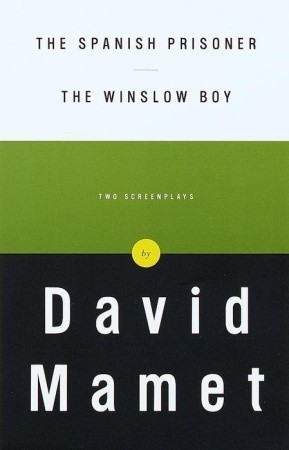
Pulitzer Prize winner David Mamet ranks among the century's most influential writers for stage and screen. His dialogue—abrasive, rhythmic—illuminates a modern aesthetic evocative of Samuel Beckett. His plots—surprising, comic, topical—have evoked comparisons to masters from Alfred Hitchcock to Arthur Miller. Here are two screenplays demonstrating the astounding range of Mamet's talents. The Spanish Prisoner, a neo-noir thriller about a research-and-development cog hoodwinked out of his own brilliant discovery, demonstrates Mamet's incomparable use of character in a dizzying tale of twists and mistaken identity. The Winslow Boy, Mamet's revisitation of Terence Rattigan's classic 1946 play, tells of a thirteen-year-old boy accused of stealing a five-shilling postal order and the tug of war for truth that ensues between his middle-class family and the Royal Navy. Crackling with wit, intelligent and surprising, The Spanish Prisoner and The Winslow Boy celebrate Mamet's unique genius and our eternal fascination with the extraordinary predicaments of the common man.
Author
David Alan Mamet is an American author, essayist, playwright, screenwriter and film director. His works are known for their clever, terse, sometimes vulgar dialogue and arcane stylized phrasing, as well as for his exploration of masculinity. As a playwright, he received Tony nominations for Glengarry Glen Ross (1984) and Speed-the-Plow (1988). As a screenwriter, he received Oscar nominations for The Verdict (1982) and Wag the Dog (1997). Mamet's recent books include The Old Religion (1997), a novel about the lynching of Leo Frank; Five Cities of Refuge: Weekly Reflections on Genesis, Exodus, Leviticus, Numbers and Deuteronomy (2004), a Torah commentary, with Rabbi Lawrence Kushner; The Wicked Son (2006), a study of Jewish self-hatred and antisemitism; and Bambi vs. Godzilla, an acerbic commentary on the movie business.